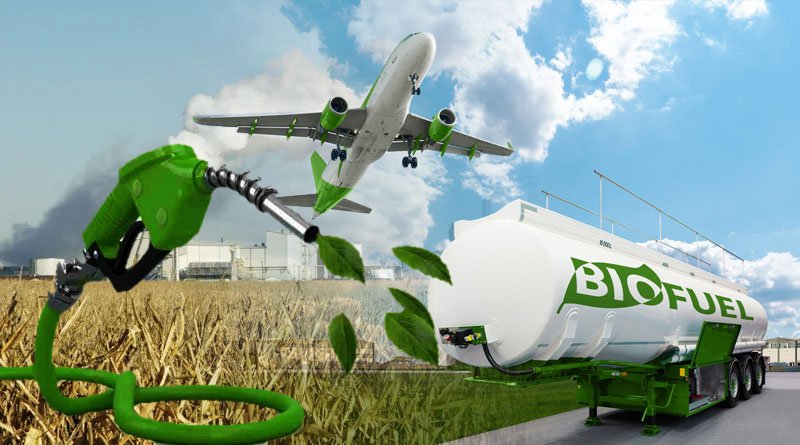The benefits of biofuels are nothing short of revolutionary, and they are thought to represent the energy production of the future.

With the increasing global concern about climate change and the need to reduce emissions, there is a mounting interest in various forms of renewable energy sources. One of these is biofuel—liquid fuels derived from renewable plant or animal sources. The benefits of biofuels are nothing short of revolutionary, and they are thought to represent the energy production of the future.
Fossil fuels such as coal and oil are the main source of energy for the world. However, they are also a major source of pollution and greenhouse gases. Burning fossil fuels releases carbon dioxide and other pollutants into the atmosphere, which can contribute to climate change
To reduce the harmful effects of fossil fuels, we need to switch to cleaner sources of energy, like biofuels. Biofuels are renewable and produce far less pollution than fossil fuels. Using biofuels can also help lessen our reliance on oil from other countries, which can improve our energy security.
What are biofuels?
Biofuels are renewable, plant-based fuels that can be used in place of traditional fossil fuels. Biofuels are often made from agricultural products like corn or soybeans, but they can also be made from algae or other plant matter. Unlike fossil fuels, biofuels are carbon-neutral, meaning they don’t release new greenhouse gases into the atmosphere when burned.
There are two main types of biofuels: ethanol and biodiesel.
- Ethanol is a type of alcohol that can be blended with gasoline to create a fuel that can be used in flex-fuel vehicles.
- Biodiesel is a type of diesel fuel made from plant oils or animal fats. Biofuels can be used in any vehicle that uses gasoline or diesel fuel, including cars, trucks, buses, trains, boats, and airplanes.
How are biofuels made?
Biofuels are created through a variety of processes, depending on the feedstock being used.
For example, ethanol can be produced from biomass through fermentation, while biodiesel is typically made via transesterification of vegetable oils or animal fats.
Other biofuels include biogas, which is produced through the anaerobic digestion of organic matter, and pyrolysis oil, which is derived from the thermal decomposition of biomass.
What are the benefits of biofuels?
There are many benefits of biofuels. They can help reduce dependence on fossil fuels, they are renewable and sustainable, they can help reduce greenhouse gas emissions, and they can create jobs and economic development.
1. Biofuels are made from plant materials such as corn, soybeans, or algae. When burned, they release energy that can be used to power vehicles or generate electricity. Biofuels burn cleaner than gasoline or diesel and emit fewer greenhouse gases into the atmosphere.
2. Biofuels are renewable and sustainable because they are made from plants that grow back after being harvested. This means that we can continue to produce biofuels indefinitely, without running out of resources.
3. In addition to being renewable and sustainable, biofuels can also help reduce greenhouse gas emissions. Greenhouse gases trap heat in the atmosphere and contribute to climate change. By reducing our reliance on fossil fuels and using cleaner burning biofuels instead, we can help mitigate the effects of climate change.
4. Finally, biofuels can create jobs and spur economic development. The production of biofuels requires farmers to grow crops, which creates jobs in the agricultural sector. In addition, the production and use of biofuels create jobs in the transportation and energy sectors. By investing in the production of biofuels, we can create new jobs and support economic growth.
How can I use biofuels in my daily life?
Biofuels are a good alternative to fossil fuels because they can be made over and over again and release less greenhouse gas when burned. As a way to get less oil and gas from other countries, many countries are now investing in biofuel production.
There are two main ways to use biofuels in your daily life: through transportation or by generating electricity.
Biofuels can be used in conventional gasoline and diesel engines without any modifications. In fact, most cars can run on a blend of up to 10% biofuel without any problems. The most common type of biofuel used for transportation is biodiesel, which can be made from vegetable oils and animal fats. Although biodiesel can be used straight (at 100%) in some diesel engines, it is usually blended with petroleum diesel to produce a lower-emissions fuel.
Another way to use biofuels in transportation is through ‘flex-fuel’ vehicles. These cars can run on gasoline, ethanol (a type of alcohol made from plants), or a mixture of both. There are already millions of flex-fuel vehicles on the road in the United States and Brazil, two countries with large sugarcane industries that produce ethanol fuel.
Conclusion
In conclusion, biofuels offer a variety of potential benefits for the world. From providing an alternative to depleting fossil fuels to reducing pollution and improving air quality, these renewable forms of energy are potentially very beneficial for both the environment and society as a whole. Even though making and using biofuels may have some downsides, their effects on the planet could have far-reaching effects that can help change our world for the better.
